What is our primary use case?
We use it for providing backups and recovery. We have a file server with a little over seven terabytes of data. The content changes quite a bit and we needed an easy tool to work with that would give us the ability to restore in a variety of ways: at the individual file level, folder level, and whole volume level, if necessary. This tool does that for us.
We're in telecom and wireless. We do installations and maintenance of towers and equipment for microwave and cellular. We do that mostly in the United States, occasionally in other places in the world. We'll have 400 people out in the field providing data to us that we have to put in a repository, that's the file server, that shows work prior to us initiating our work assignment from our customer, during the process, and at completion. That way, the customer doesn't have to go to remote places to verify. Sometimes, we can address an intermittent problem and say it's fixed and, of course, it comes back the next day because it really wasn't fixed. So, it's hard for our customer to know when something is done.
So we take a lot of images of our work, associated with projects, and those are uploaded by the field people every day. We provide the backup necessary to our customer. We'll receive ten or 20 gigabytes of images daily, which go into the repository. They have to be tracked and recorded, put into the reports associated with the projects and the status of those projects, and then provided to our customers.
That's what we do on a daily basis. We're a 24/7 shop, so what we do has to minimize downtime, so that the tools are available to the people, especially if they're in the field. They'll VPN in and provide reports and images necessary to show the work has been performed.
How has it helped my organization?
The nice thing about Vembu is that when it's running - as it does incrementals daily - we don't see a negative hit on the performance of the server it runs on. I can also pause it, should that happen, but I've never had to do that.
It generates daily reports. I look at them seven days a week, even though I only work five days a week, because I want to make sure that everything's working fine. From a productivity standpoint, it has not hindered anyone and it keeps me very well informed that our backups are being completed. It gives me the data that I need to know, that makes me feel comfortable: Yes, that makes sense for that day, that much data being added to our repository, etc.
It has made my job, making sure we have a backup and being able to count on using it, a lot easier. As far as impacting the user community that uses the file server that's being addressed for backup purposes, it has not impacted them in any negative way whatsoever.
Finally, it helps us deliver an enterprise-level data protection solution and reduce budgets at a price that - and we don't want to encourage them to change their pricing - is a great value.
What is most valuable?
The dashboard is very easy to use, setting up the backup is very intuitive. Since that's our primary purpose in using it, it made it easy, when I was doing evaluations a year ago, to choose the product.
If I want to back up to this past Friday, and reinstall the file server to that state, I can choose a point in time and issue the command to back up and I don't need to go in and restore the last full backup and then apply iteratively, sequentially, all the incrementals, as I've had to do in some other software in the past. It's nice that I can pick a point in time and tell it I want to go to that state and it's transparent to me. It happens in the background for me.
It's very easy to use, very quick and efficient. From a backup standpoint, it has provided us the tools we need on a daily basis to know that it's working properly and with almost no manual maintenance work from us to verify it. It just comes to us. It's been very positive, helping us address that need efficiently.
What needs improvement?
In the beginning, when we had some hiccups, I would chalk that up more to a learning curve for the product. Once we understood how it operated - where we thought it was doing something a certain way and it was not - it was easy to understand, once it was pointed out.
The times when we've had problems, they've not been repeated problems, they've been addressed, and it was more learning curve issues. With any software there is a learning curve. Not all backup software operates exactly the same way, so some things were a little bit different. But once we understood why and how they worked, it made sense. It was sometimes a different approach, but not a problem for us.
For how long have I used the solution?
Less than one year.
What do I think about the stability of the solution?
There is no problem with the product's stability. We get our nightly reports on schedule. We've never had the application fail, and better, the application doesn't interfere with anyone else's application. It's been everything and more than what we had hoped for.
What do I think about the scalability of the solution?
I can only speak for our environment where we've used it - and I know it has so much more capabilities, because when we go in through the dashboard and the wizard to create backups, we see where we could use it and how we could use it. But in our environment, whether we had seven-and-a-half terabytes or 15, I wouldn't have to change anything.
The other thing that I like is that it has software to provide a distributed copy to another site. It's a very economical add-on to the suite. But because it's terabytes, and with it going across the Internet to do the initial cloning of that, it has a feature where you bring in your other servers, set it up, establish your initial clone there, and you put the server out and then you only have to keep track of the changes, which is much easier to do. We have a 100-megabit connection to the internet, but even there, if you're going to have to keep terabytes worth of data synced, it would be really hard. In this case, we only have to keep track of the delta once the initial distributed backup has been made.
It has a lot of capabilities. We just started getting into the distributed backup and, from a scalability perspective, I've not seen any issues in our use of it. And especially in the beginning, we monitored the resource usage to make sure that we didn't see a degradation on the server to the user. That was not a problem.
I could easily see us doubling what we're backing up without any issues and problems and with no additional tuning necessary.
How are customer service and technical support?
The other thing that stands out, while it isn't a feature per se, is support. Any time we have a question, whether we call or email them, we get an amazing response. We're not a Fortune 500 company, we're smaller, we don't have a large number of licenses yet. But we get quick response and follow-up to make sure that the issue has been properly addressed, as though we were a Fortune 500 company. I'm amazed by the level of support they provide.
Last time I contacted them was because the volume that we put our backups on became full, and I wasn't sure what the best way was to address the problem. They gave me directions on how to address the problem, but more importantly, on how to avoid the problem in the future.
Around October of 2018, I did escalate an issue regarding backups but that was the only time that I can remember having to do so. Like everything else, it went extremely well. The follow-up and the level of detail, hands-on, were great. I've been in IT for 40 years and it's not something I'm used to seeing. It has been a nice surprise.
Which solution did I use previously and why did I switch?
The oldest previous solution we had was Windows Server Backup.
Once we put Vembu on the production server, we ran a full backup that evening. That's probably one of the nicest things about the backup. Not that companies don't have seven-plus terabytes of data to backup - that's large, but there are certainly many that have much more than that - but backing up that much data in Windows Backup is an impossible task. So the ability to address the data in the way that Vembu does, versus the way Windows Backup does, we had to use a Vembu-type product. There was no choice. Seven-and-a-half terabytes in Windows Backup, on a server level, would've taken weeks, which is not acceptable.
We needed a solution that was doable. Some of the solutions that we were using took an unreasonable amount of time to back up the data. Even when they were running on the same server and the pool was on the same server that they were backing up to, it was not acceptable. We needed something that was more efficient in the way it addressed reading the file structure. Vembu provided that. Then we had the additional functionalities that we wanted to be able to restore the way I mentioned, plus the support. I can't say enough about the support Vembu. I just don't have any other positive experiences that are as nice as what they provide.
How was the initial setup?
Nothing was complex regarding the initial setup. We could do backups on day one with the software. It wasn't a question of just doing the backups but of trying to do them so it provided us the greatest amount of flexibility and that we were using our pool space as efficiently as we could. That took a little bit of investigating and communication with support. But once we understood it, it was not a problem.
On the initial install, there were some things that I thought were going to happen a little differently. We thought we wouldn't eat up the size of our pool, our repository, for backups as quickly because of compression. But when you think about it, that's not a Vembu issue. That's just a practical result of the fact that jpegs already come compressed, so you're not going to get much compression. We underestimated the amount of space we needed.
Installing it takes just a couple of hours. It's easy to do. There was no negative impact on anything else running on it. It was simple. We did a backup the same day we installed it, in a test environment, so we could do whatever we wanted. We could do restores, do incrementals, combine incrementals to weeklies, etc. And we didn't have any problem doing any of those things. We'd have a question, periodically, but we would get a response the same day, which was always nice.
In terms of staff for deployment, I'll divide that into two pieces. One was a more thorough test of our environment, versus not the high-level tests that we did during the evaluations. We did that over a two-week period of time with a quarter to a half of a person.
Regarding the implementation strategy we developed, there was an assessment of what our needs were, tailored to our specific situation. Once we did that, we evaluated what products we might be able to use. We then considered support and maintenance issues and would the products be able to function within our requirements, timeframes, and give us the backup capabilities at the levels that we wanted: file, folder, and volume. This process allowed us to come up with a shortlist of three products and do a little bit deeper testing with them and decide on which one we thought was the best.
What was our ROI?
We haven't done an analysis of how much money we have saved by switching to Vembu. We did a post-implementation assessment that made sure all of our requirements were met. Part of that is financial, but I can divulge the savings that it provided.
I've worked for extremely large companies as well as startup companies. In our environment - out of this office we have 400 field people - we're a relatively small business. If I was backing up multiple file servers, much more data than we are, it wouldn't take much more time with Vembu. There's an inherent amount of time to install and get to know a product, and then to use it. If it's pretty intuitive with good support, it can be really easy. Vembu has turned out to be really easy. The amount of budget associated with supporting is way under what we expected. That's a good thing and that's because of the support that they provide, instead of us having to do things like we have to do with some of our other applications.
For example, we've used our accounting system for a long time here, and people are used to it; creatures of habit, like most. But the amount of support that it takes, despite it being here for decades, means that any time we make a change it's way more involved. There's an element of risk that we don't care for. It's not what we like. There's an unpredictability about it. We have not seen that with the Vembu product.
What's my experience with pricing, setup cost, and licensing?
It's an amazing value. Their licensing structure is easy to understand and it's very fair. We don't have any problem with it.
Which other solutions did I evaluate?
We looked at different tools and tested them ourselves. We had our own requirements list of what we needed to do, and it was all tailored to our environment. The evaluation occurred over a month of elapsed time and probably involved a person to person-and-a-half in that period of time.
Quite honestly, we could have gone with other products, but the support level from Vembu was unparalleled. Today, a lot of companies want to refer you to a forum, a community, and they don't want to talk. They don't want to provide people who know the product and know your situation. It's hard to find an example in a forum that is exactly like what you're trying to address. Vembu, consistently over the month, as well as the second-level evaluation, was always there to provide support and answer questions. It was a deciding factor, absolutely. They had the functionality, but they provided the real people for support, which just made a world of difference for us.
Some of the companies that we were using and evaluating, when we told them what we ended up choosing, just out of courtesy, in some cases they either didn't know who they were or acted like they didn't know who they were.
It was an easy decision, when it came to the end, to choose Vembu.
What other advice do I have?
It has to meet your needs. But for most people, for backups of large amounts of data, I would strongly encourage you to use it, and not be hesitant to contact the support desk if you have a question. Don't just install it with the intent that your first use is going to be your final setup because there are ways to tune it to make it more efficient on space usage for the pool where you put your backups. The help is there. That's the good thing. With most other products, you're not going to get the same response. Use the help and you're probably going to be quite happy with it.
I would encourage you to count on support, run your tests, play with it, and you'll be pleasantly surprised and happy with the results.
Of the software that I license, I feel I get more value from this than any others. I just can't think of anything that I'm looking for that Vembu BDR isn't already addressing. I've got no wish list for them.
Everything I need is being addressed by the product and then some. I wish them great success and I want them to be around a long time. I don't want to have to go and replace this. This is a good product. It does what we need and I'm not seeing anything that I wish it had.
I like the compression, encryption, and deduplication features, although in our case, we don't get much compression because a lot of our material is already compressed. There just isn't an opportunity to see a big reduction. But the tools allow us to have every feature we want, including being able to restore from the backups. Of course, we don't have to do full backups very often, because of the way it has been set up.
Encryption today is, obviously, given privacy issues and confidentiality, very important. In our particular case, it's an added plus but it wasn't a real high criterion because the data that we have is not considered highly confidential. In fact, if it was put out in the public domain, it would not cause our customer or ourselves a problem. It's nice to have, but it wasn't something that was as critical to us as it might be to a lot of others.
We don't use it to back up our virtual environments. We keep things very discreet here. We don't run a VM type of environment. Servers are by function. Hardware has become so incredibly cheap. I understand the savings, the value with VM and having a virtual environment for different things. But to us, hardware is just incredibly inexpensive. If we have something in our accounting system that needs to be addressed, an upgrade or the like, we like having it on its own server and discreet from everything else. It also inherently provides easier access control for those systems that are more critical, in terms of the type of information on them.
Regarding staff for maintenance of the solution, we're talking fractions. We just look at our reports daily just to make sure that they are giving us the information we need, indicating that backups were successful and that the expected amount of data that was backed up. We know how much data comes in every day approximately. We can confirm that it's been done properly. It's just minutes a day. I don't think it needs a full day per month of attention. The maintenance is extremely low.
We have other environments that we need to address in a different way than we are today. The company is old enough that, like most entities, it is a creature of habit. So changing the way we do things is a little slow sometimes. But I can see us using this in several other environments, other than what we initially targeted. I can't tell you when that will happen but I believe that it will happen because of the experience we've had.
The end-users don't use it, per se, because they have no touch with it. It's IT that uses it. Nobody has a problem with it. We have a small group of six IT people in this main building. We try to get different people exposed to it. They vary from application support, mostly in the accounting area, and then, because we do a lot of VPN, we have network people who handle network security. We have failover network with multiple ISPs so networking becomes a big issue, plus the security side. Percentage-wise, there are more people involved in network and security than in many companies. Yet those people are still required to be able to support the applications we have, including Vembu. Nobody's had a problem doing that.
I'd love to try it in a virtual environment. We just don't do that here. We're a Windows Server shop, so I've not tried it in other operating systems, like Unix and Linux.
For my needs, I'd give Vembu a nine out of ten, and that's only because I'm hesitant to say anything is perfect.
Everything could be improved. For example, if you were to have a custom backup solution created, it might be a ten if they achieved everything you listed regarding what you need. But it's not practical to do that for an individual or a small company. I've been responsible for a lot of development people and developing applications. It's somewhat subjective on where you place buttons and how efficient they are.
Once you get used to a product, if it wasn't made for you, and it's working and meeting all your needs, without having negative side effects, you got to give it a high score. It's the only fair thing to do. The only way for me to get to a ten is to say that it's perfect, that it laid out all its buttons and features just as I would. If I had written it, maybe that would be the case, but by the time I had written it and gotten it done, I'd be retired.
It's a great product. Amazing support. It's a very good value for our environment, no question. We will not change. This is a good product that does everything we want and more.
Disclosure: PeerSpot contacted the reviewer to collect the review and to validate authenticity. The reviewer was referred by the vendor, but the review is not subject to editing or approval by the vendor.

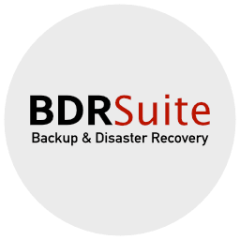






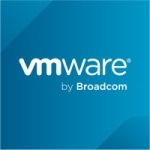


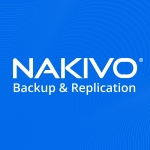

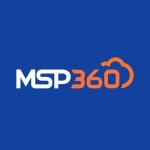

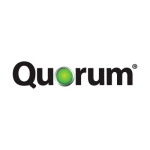

Thank you for the insightful review you have given us.
We are glad that Vembu BDR Suite has met your expectations and worked well for your environment. For further updates or queries, please get in touch with our team through vembu-support@vembu.com